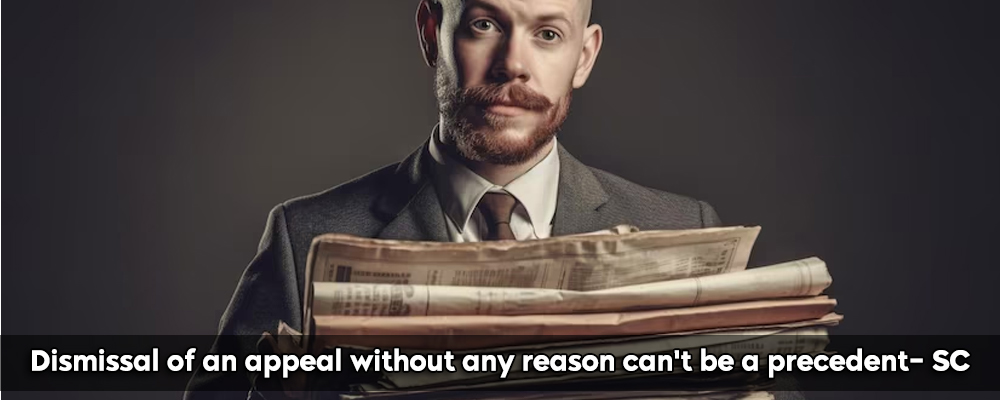While deciding the case of Experion Developers Pvt Ltd v Himanshu Dewan and Sonali Dewan, the Supreme Court observed that the order given by it where the Apex Court dismissed an appeal without having any reasons recorded, cannot be treated as a precedent for the future references.
The Bench of Justices Sanjiv Khanna, Bela M. Trivedi and Ujjal Bhuyan, expressed that precedents cannot decide the question of fact.
Need A Legal Advice
The internet is not a lawyer and neither are you. Talk to a real lawyer about your legal issue

Facts of the case
- The contentions raised in the case included the point that the Supreme Court passed an order in the case of Pawan Gupta v Experion Developers Private Limited, where the principle of res judicata and doctrine of merger was applied, and hence based on the precedence set in the case, the submissions raised by the appellant in the present case shall be prevented.
- The Supreme Court observed that a clear line of distinction is there between the rule of precedents in terms of Article 141 of the Constitution of India and the doctrine of merger and res judicata as could referred from the decisions of the Court in the cases of Kunhayammed v State of Kerala; Makhija Construction Construction & Engg. (P) Ltd. v Indore Development Authority; Khoday Distilleries Limited v Sri Mahadeshwara Sahakara Sakkare Karkhane Limited.
- The intention behind the doctrine of merger is that for one subject matter no more than one decree or governing matter could be there.
- After the superior court has disposed a dispute before it in any manner, by either passing a decree or order or by setting aside or even modifying the same, the decree of the superior court, tribunal or similar authority, shall have the final binding and operative decree.
- A precedent shall be binding in similar situations in a distinct case, while the principle of res judicata would have no application in cases where judgement or order has been passed by the Court which does not have jurisdiction or involve a pure question of law.
- Hence, the Apex Court ordered that order of the Supreme Court where it dismissed the appeal in the case of Pawan Gupta, shall not be applied a precedent and applied in the present cases.
Doctrine of Merger
- The logic behind the doctrine of merger is that there can’t be more than one decrees of orders for similar subject matter.
- When a decree or an order is passed by an inferior Court or tribunal, the decree or order could be challenged further to a superior forum. After the Superior Forum or Court respectively, dispose the dispute either by affirming the previous decree or order, or by setting aside or modifying the same, such decision of the superior Court or authority shall be final.
- Hence, the decree and order of the inferior court, tribunal or authority will get merged into the order passed by the superior forum.
Precedent and Res Judicata
- A precedent shall be binding in the similar situations in a particular case, while res judicata shall bind the parties or the proceedings for the sole reason that there shall be an end to the litigation.
- The principle of res judicata would not have any application in cases where the judgement or order passed by the Court which does not have any jurisdiction or involve a pure question of law.
Lead India offers you a team of experienced lawyers who have been successfully handling cases related to various fields of law including civil and criminal laws. Therefore, if you wish to talk to a lawyer or seek free legal advice online, you may contact us.





 Talk to a Lawyer
Talk to a Lawyer